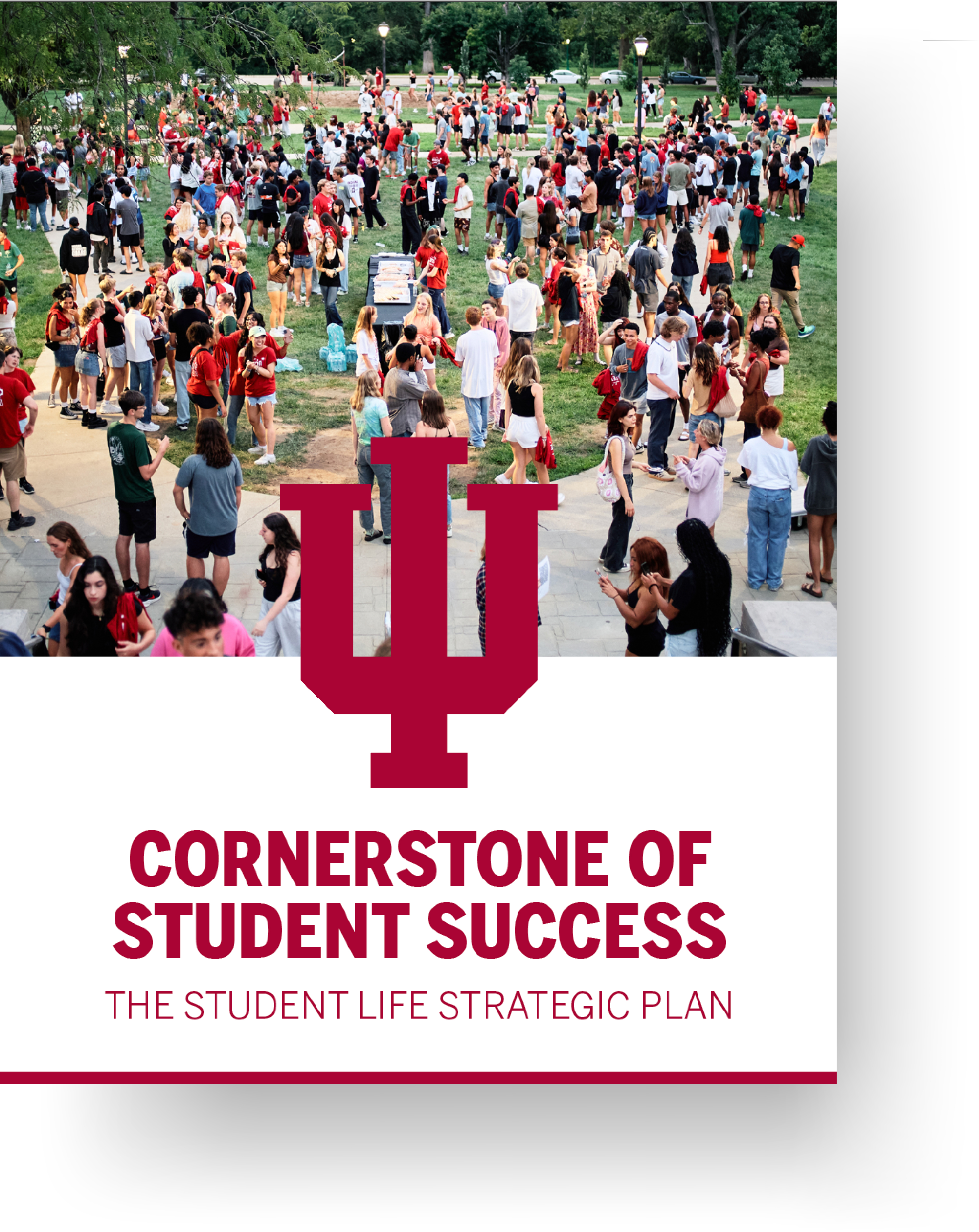The Office of Student Life Strategic Plan provides a staff, student, and faculty-informed list of recommendations to serve as the roadmap for how we will achieve the goals outlined in the IUB 2030 Strategic Plan.
Throughout the 2024-25 school year, an Office of Student Life Strategic Plan was developed that will help us actualize our mission, vision, and values and guide us to achieve our goals for the next five years.
The plan is data informed, not data driven, and has considered the voices of students we serve, Student Life staff, and faculty. This plan is a guiding document that has been collaboratively constructed. It will not simply sit on a shelf, and it is not a pre-determined list of things.



